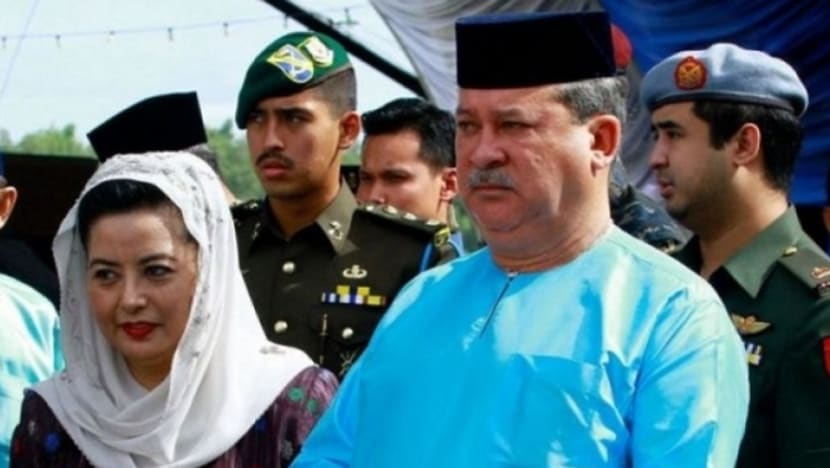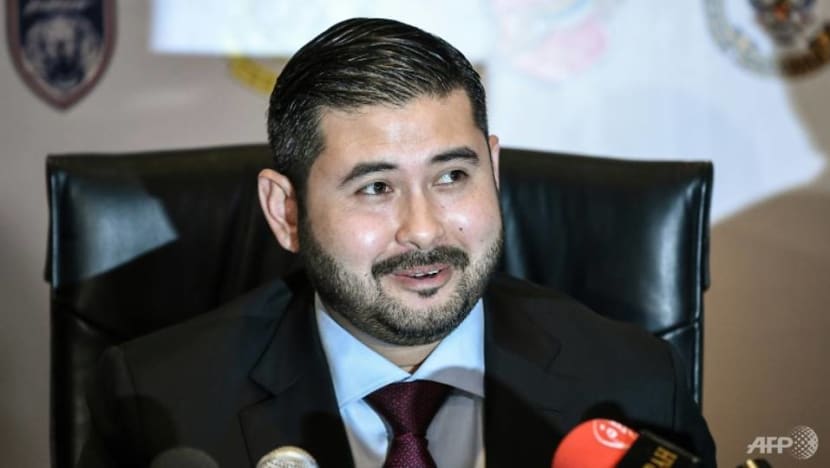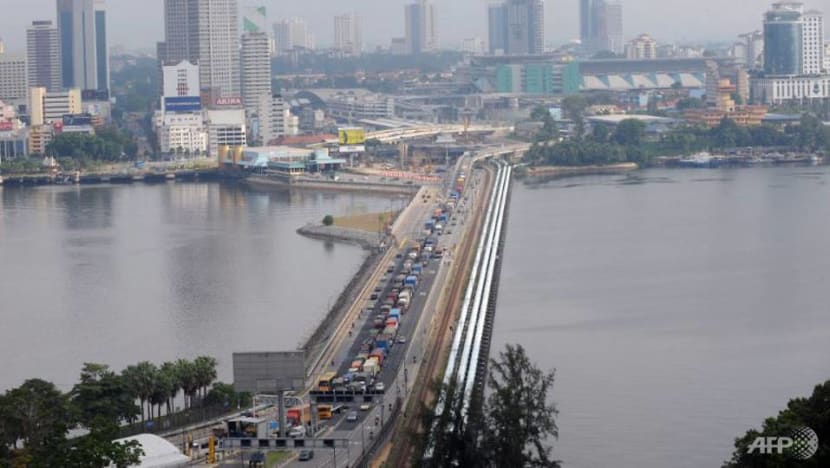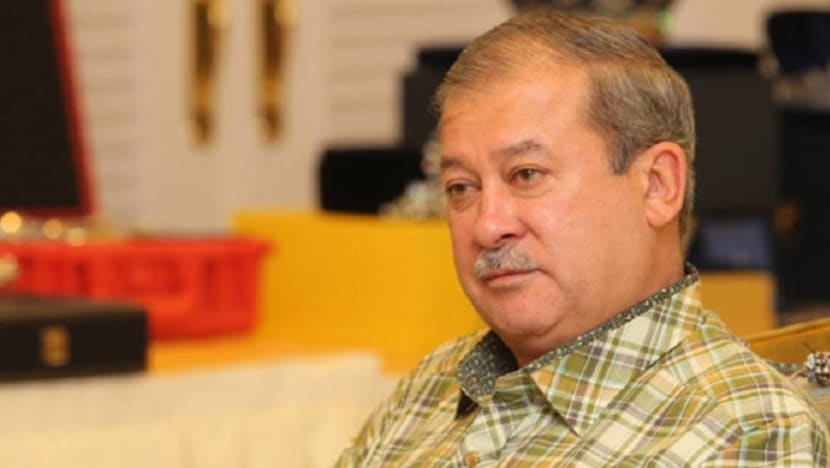commentary Asia
Commentary: Neutral but holding great sway, the royal family’s influence over Johor’s vote in the election
The Sultan of Johor and the royal family have huge influence over affairs of the Johor state, says ISEAS-Yusof Ishak Institute’s Serina Rahman.

Sultan Ibrahim Sultan Iskandar of Johor. (Photo: Official Facebook page of Sultan Ibrahim)
SINGAPORE: The Johor royal family is greatly respected by the state’s citizens, especially its Malay base.
For them, respect for Sultan Ibrahim is second only to devotion to God.
Historically a feudal society, the Sultan’s position at the top of the hierarchy is ingrained in the mental and cultural psyche of Johor’s majority Malay community.
For non-Malays, there is the concept of Bangsa Johor. Since the early days of the Johor Sultanate, the ruling family have underscored the inclusive mantra of a state for all its citizens.
The state football team Johor Darul Ta’zim (JDT) is the clarion call for Bangsa Johor. Crown Prince Ismail Idris (better known as the Tunku Mahkota Johor or TMJ) regularly exhorts his people to rally around the football team, as a symbol of the state’s solidarity.
The success that JDT has had is often attributed to TMJ’s leadership, so the euphoria that comes with winning multiple titles and championships in turn solidifies the Bangsa Johor identity and the people’s respect for their royalty.
RACE AND RELIGION
In line with Bangsa Johor, Sultan Ibrahim Iskandar has taken a firm stance when it comes to race and religion.
A few weeks ago, he reminded politicians not to incite racial and religious conflict in the lead up to the elections. He has also in the past declared that racists and haters should leave his state.
The Sultan often asserts that he does not believe in racial politics but aims to foster racial unity.
While some say this is a clever centrist business and public relations strategy, there is no denying it is a practice that goes down well with the general populace.
The ISEAS-Yusof Ishak Institute’s Johor survey conducted in 2017 showed 87 per cent of respondents say they are satisfied with the performance of the royal family. While Malay respondents registered 90 per cent approval ratings, Chinese (83 per cent) and Indian (90 per cent) respondents were also very positive.

State religious practices are, by law, under the Sultan’s sole purview and he exerts this authority in this area.
When a laundromat owner in Johor laid out a sign banning service to non-Muslims last September, he was sanctioned by the Sultan and told to remove the restriction or shut down.
The Sultan also ordered the state religious authority to stop dealing with the Malaysian Islamic Development Department when its officer disagreed with the Sultan’s reaction.
Earlier, in 2015, when some religious preachers insisted it was a sin for Muslims to wish others during their festive seasons, the royal family attended non-Muslim celebrations. The Sultan and TMJ also wished all Christians a “Happy Christmas” on their social media sites.

ACTIVE INVOLVEMENT IN STATE GOVERNANCE
That same year, when the goods and services tax (GST) was implemented, Sultan Ibrahim directed Johor local councils not to charge GST and instructed the state government to absorb the costs and reimburse customs.
Some outside of Johor express misgivings about the Sultan’s active involvement in state governance.
To this, the Sultan has reminded people that it is on his authority that the state government is appointed. He has also pointed out that he holds weekly meetings with the Menteri Besar to ensure his people’s interests are protected.
Within Johor, the Sultan’s approach to state management has strong support. 75 per cent of respondents to the 2017 Johor survey said they agree the Sultan should intervene in politics when necessary.
Johor’s state government is also viewed favourably. 77 per cent expressed satisfaction with its performance in the same survey. This is not surprising given visible indications of development across the state, a surplus in the state budget and constant reminders of the success of the Iskandar Development Region.
63 per cent of survey respondents overall were optimistic about conditions in Johor.

A FACTOR IN THE GENERAL ELECTIONS
In all these, the key question is whether the Sultan and royal family’s influence will impact the upcoming General Elections.
UMNO incumbent Johor Menteri Besar Khaled Nordin’s close cooperation and collaboration with the Sultan helps to enhance his standing, and the success of his government also reflects well on the Sultan.
In a ranking of how favourably Johor leaders were viewed by over 1,000 Johor residents, 46 per cent of respondents gave the top spot to the royal family but Khaled Nordin came a close second at 34 per cent.
Much in the same vein as Bangsa Johor, Khaled Nordin lauds an inclusive mantra of Muafakat Johor (Johor United) to brand his programmes. Projects under the Muafakat Johor label include affordable housing for the poor, community infrastructure and improved transportation services.
This branding serves to highlight Johor UMNO’s contribution to the people.
READ: A commentary on Johor residents' worries in the lead-up to Malaysia's general election.
STATE VERSUS FEDERAL
Johor citizens tend to view state and federal UMNO machineries as separate entities.
My recent on-the-ground research, through interviews and focus group discussions, finds that most Johor residents blame issues such as GST and racial polarisation on the federal UMNO leadership, but they are happy with state UMNO leaders and representatives.
Some people interviewed say that federal ministers should be removed and replaced, but that there is nothing wrong with Johor state governance.

It is thus likely that Johor voters may decide to support existing state UMNO representatives because they believe good work has been done. Assuming that the average citizen understands the difference, parliamentary seats (made of federal representatives) might be in danger.
A tempering effect is that most people on the ground do not make a clear differentiation between state and parliamentary seats; rural voters often go to the ballot simply looking for a name or party flag that they recognise.
ABOVE POLITICS
Many Johor residents regard the Sultan and TMJ highly for what they see as actions and difficult decisions made in the interest of the state, and deeds that follow their words.
While the Sultan has previously reminded the media that UMNO was born in Johor on palace grounds, he has also constantly highlighted that he is above politics and does not favour any politician.
This ability to place himself and by extension the royal family above politicking and electioneering adds to the esteem accorded to the Sultan and TMJ.
Their actions and words are often deemed to be in the best interests of the people, compared to politicians who are seen to have murky ulterior motives.

VOTERS WILL BE WATCHING
Leading up to the elections, most Johor residents will be watching the Sultan and the TMJ. In a state where the Sultan’s opinion matters greatly to the average voter, their actions and words on politicians running for office may impact votes at the ballot box.
It is unclear if former prime minister and opposition leader Mahathir Mohamad’s past disagreements with the Sultan will taint the opposition’s standing with Johor voters, even though many critics have said so.
What is clearer is the Sultan will likely remain neutral even as he continues to take a principled stance on policy and specific issues. He recently reminded his mayors and local council presidents that their job is to carry out their duties without fear of or fervour for any political party.
More importantly, while the Sultan has not indicated a preference for any party or politician, he has clearly stated his disapproval of anyone who tries to play the race or religious cards to incite hate.
So it will be incumbent on those campaigning in Johor to pay heed to his words.
Serina Rahman is a Visiting Fellow at the Malaysia Programme at the ISEAS-Yusof Ishak Institute.
Read other commentaries on Malaysia’s impending general election:
1. The younger array of leaders presented by the opposition.
2. Why Mahathir's leadership of the opposition confuses Kedah voters.
3. Why Mahathir’s prime minister candidacy moves the opposition one step closer to toppling the Barisan Nasional.
4. Why UMNO and PAS have become complicit partners.
5. Why the Malaysia general election is an uphill battle for the opposition.














